New York/Hong Kong, September 22, 2025 — James Chau, President of the China-United States Exchange Foundation (CUSEF), joined global leaders, Nobel Laureates, and youth changemakers today for the 80th UN General Assembly (UNGA) High-Level Event on Social Business, Youth, and Technology, where he delivered a speech discussing social innovation as a tool for peace, investing in youth, and advancing high quality people-to-people dialogue.
Mr. Chau also reflected on the 80th anniversary of the United Nations as a moment to renew the values of partnership and shared responsibility, particularly as the world feels once again fractured:
“In this environment, we need to reaffirm the values that sustain peace and development. Accuracy and consistency may sound like modest goals, but they are in fact, incredibly powerful…
We must pursue these values not only on high stages like this one this week here in New York, but in our communities and with our young people, who carry the future in their hands. We must engage in not just high-level dialogue, but high-quality dialogue. And we must build new coalitions of the next generation of like-hearted individuals, organizations, and member states—those who choose to stand up to promote dialogue over division, and compassion over conflict.”
He also emphasized the leadership of Professor Muhammad Yunus and his vision for a ‘world of three zeroes’—zero poverty, zero unemployment, and zero net carbon emissions—as both a challenge and a guide for advancing peace and shared prosperity, and reaffirmed CUSEF’s commitments:
● To invest in young leaders with the skills and imagination to shape a more inclusive world;
● To support social innovation that lifts communities and redefines prosperity;
● To model people-centered diplomacy, rooted in listening, trust, and long-term action.
The UNGA event was led by Professor Muhammad Yunus, Chief Adviser of Bangladesh, 2006 Nobel Peace Laureate, and UN SDG Advocate Emeritus; and other distinguished participants joined him delivering high-level remarks, including Dr. Tawakkol Abdel-Salam Khalid Karman, Nobel Peace Prize Laureate, Yemeni journalist, and human rights activist; His Excellency José Ramos-Horta, President of Timor Leste and 1996 Nobel Peace Laureate; and Dr. Qu Dongyu, Director-General of the UN Nations Food and Agriculture Organization.
In his remarks, Professor Yunus stressed that if we come together and utilize the tools at hand, we can create meaningful change and build a better and more just society:
“In these turbulent times, true transformation lies in our unity. If we join hands, harnessing the power of social business, the energy of youth, and the potential of technology, we can untangle even the most complex global crises. Let us become the architects of the new world: a world built on justice, sustainability, and hope. A world where our collective dreams ignite a new dawn for all of humanity.”
CUSEF was proud to partner with the Yunus Centre and The YY Foundation to put on this event, which drew an engaged audience of policymakers, civil society representatives, and young innovators, underscoring the urgency of reimagining peace and development through collaboration across generations.
CUSEF looks forward to extending these conversations at its annual flagship program, the 6th U.S.-China Hong Kong Forum, to be held on November 17, 2025, under the theme “Circles for Peace.”
Full remarks by James Chau, President of the China-United States Exchange Foundation, at the UN High-Level Event on Social Business, Youth, and Technology are as follows:
Excellencies, Colleagues, and Friends:
It’s an honor to speak at this historic moment—80 years since the end of the Second World War, and 80 years since the founding of the United Nations. The world emerged from conflict with a bold vision for a new and better world: peace through partnership, and progress through shared responsibility. China and the United States stood shoulder to shoulder as founding members of this global community, united in vision and responsibility—and today, we remember that unity not simply as history, but as a call to action.
Eighty years on, the world feels fractured once again. Allies of 1945 find themselves on opposite sides of populist narratives that move faster than truth—shaped by emotion, and driven by platforms that reward conflict. In this environment, we need to reaffirm the values that sustain peace and development. Accuracy and consistency may sound like modest goals, but they are in fact, incredibly powerful. They are the foundations of predictability, development, and stability. They create space for societies to thrive, for people to live and play freely, enjoy health and human rights, and for peace to take root.
We must pursue these values not only on high stages like this one this week here in New York, but in our communities and with our young people, who carry the future in their hands. We must engage in not just high-level dialogue, but high-quality dialogue. And we must build new coalitions of the next generation of like-hearted individuals, organizations, and member states—those who choose to stand up to promote dialogue over division, and compassion over conflict.
At CUSEF, the China–United States Exchange Foundation, we believe that peace and development is built through people—through open conversation, mutual understanding, and enduring relationships. We create people-centered exchanges that deepen understanding and build long-term trust. We focus on high-quality dialogue that moves us forward. We invest in young leaders who are shaping a more inclusive future. And we see technology and social innovation, guided by purpose and anchored in values, as critical tools to meet our shared challenges.
This year alone, we supported more than 20 youth delegations across China and the U.S., bringing together students, scholars and global decision-makers from over 18 countries. Through our digital platforms, we reached over 40 million people with ideas and stories that connect across borders. And through our partnership with The Carter Center, we joined in advancing the eradication of Guinea Worm Disease—President Carter’s final ambition.
That is why we are honored and humbled to join this partnership with the Yunus Centre and The YY Foundation, part of this allied effort to build a better world. As it was in 1945, so it is now: peace must be more than a slogan, it must be a shared endeavor.
So, today, on behalf of CUSEF, we reaffirm our commitments:
● To invest in young leaders with the skills and imagination to shape a more inclusive world;
● To support social innovation that lifts communities and redefines prosperity;
● And to model people-centered diplomacy, rooted in listening, trust, and long-term action.
These are the principles that guide our work. And we know they can only be realized through partnership. That is why we look forward to working with the Yunus Centre, The YY Foundation, and all of the partners in this room, so that together, we can turn our commitments into action, and action into lasting change.
As we look ahead to the 6th U.S.–China Hong Kong Forum, CUSEF’s annual flagship event in November that will center on the theme “Circles for Peace,” we will carry forward the spirit and urgency of today’s dialogue. We are humbled that Professor Muhammad Yunus opened the Forum last year, and President José Ramos-Horta the year before that.
Both of these leaders are moral examples of transformation and meaningful leadership. Professor Yunus has shown the world what’s possible when we act with courage, vision, and care. He reminds us that peace is not only the absence of war—it is the presence of equity, of dignity, of shared purpose. And that peace endures when people choose it, practice it, and protect it—together.
His vision for a world of three zeroes—zero poverty, zero unemployment, and zero net carbon emissions–-offers both a challenge and a guide. And at CUSEF, we are proud to join Professor Yunus in working toward this reality.
Last year, the youth of Bangladesh spoke clearly—and their voices were resoundingly heard around the world. As the sounds of young people resonate on every part of the planet, may we also make the promise to listen deeply, with compassion and empathy.
Let us build what the UN envisioned 80 years ago—a world of partners and peacebuilders.
Thank you.
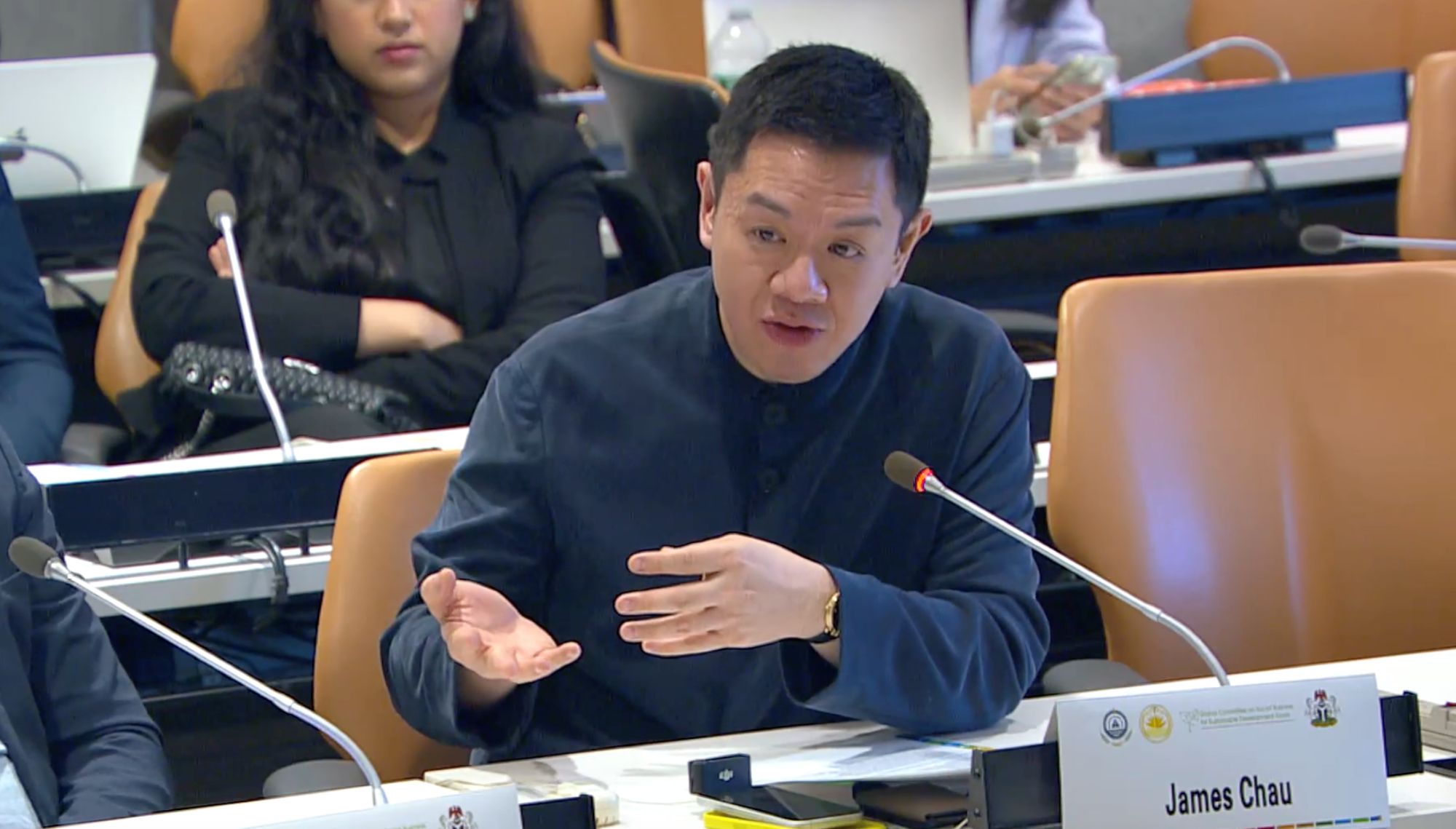
CUSEF President James Chau speaks at the 80th UAGA High-level Event on Social Business, Youth and Technology on September 22, 2025, at the UN Headquarters in New York.
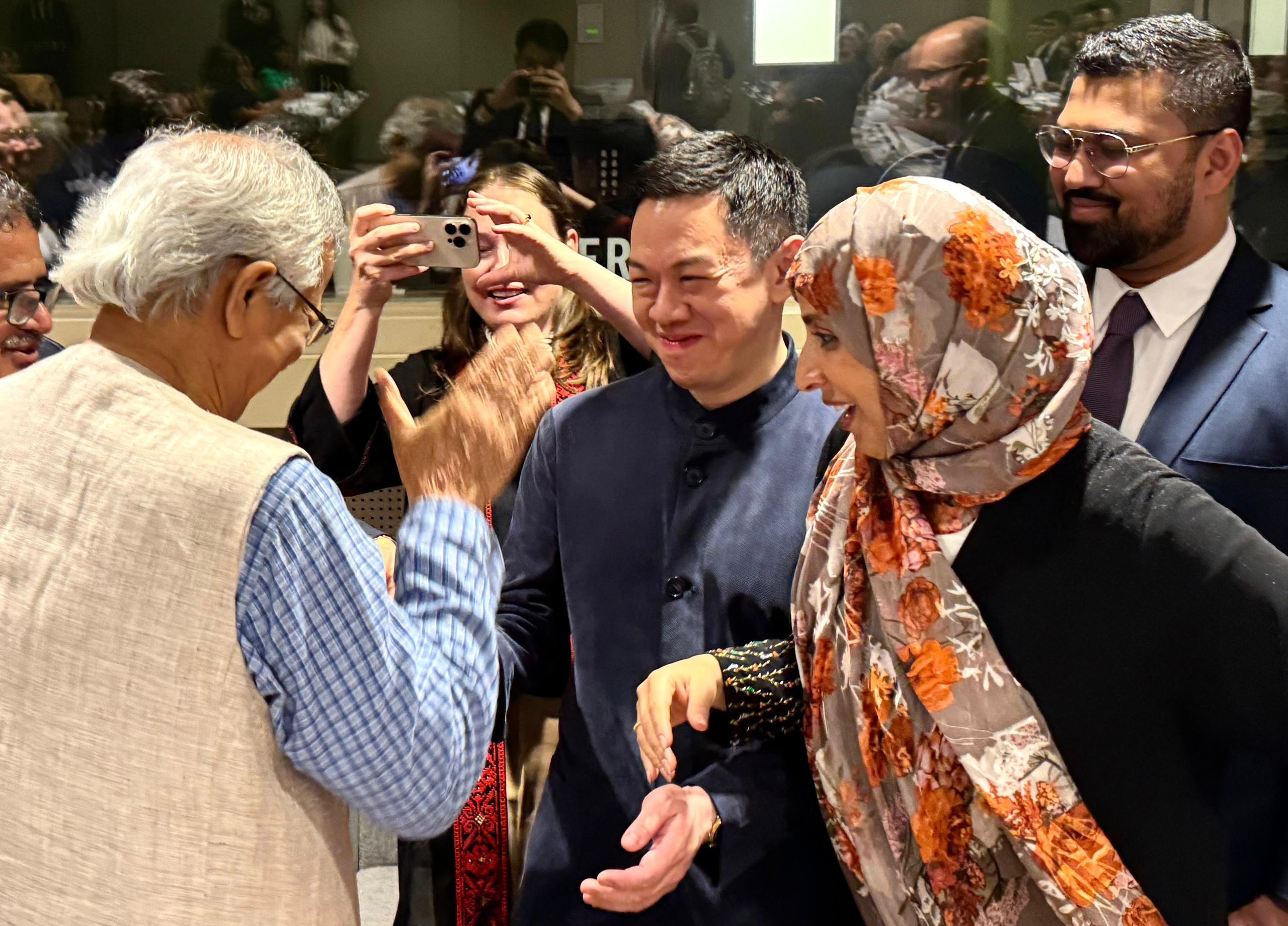
James Chau with Nobel Peace Prize winners Muhammad Yunus (L) and Tawakkol Karman (R)
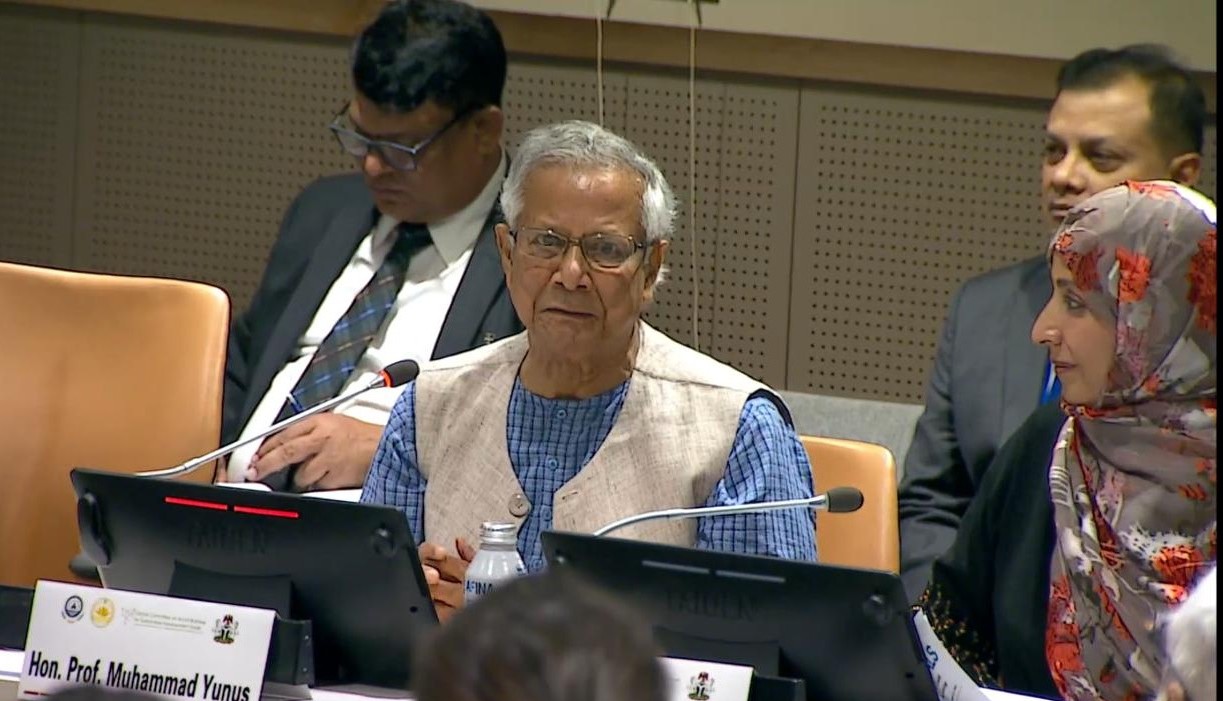
Professor Muhammad Yunus, Chief Adviser of Bangladesh and 2006 Nobel Peace Laureate, speaks at the event.
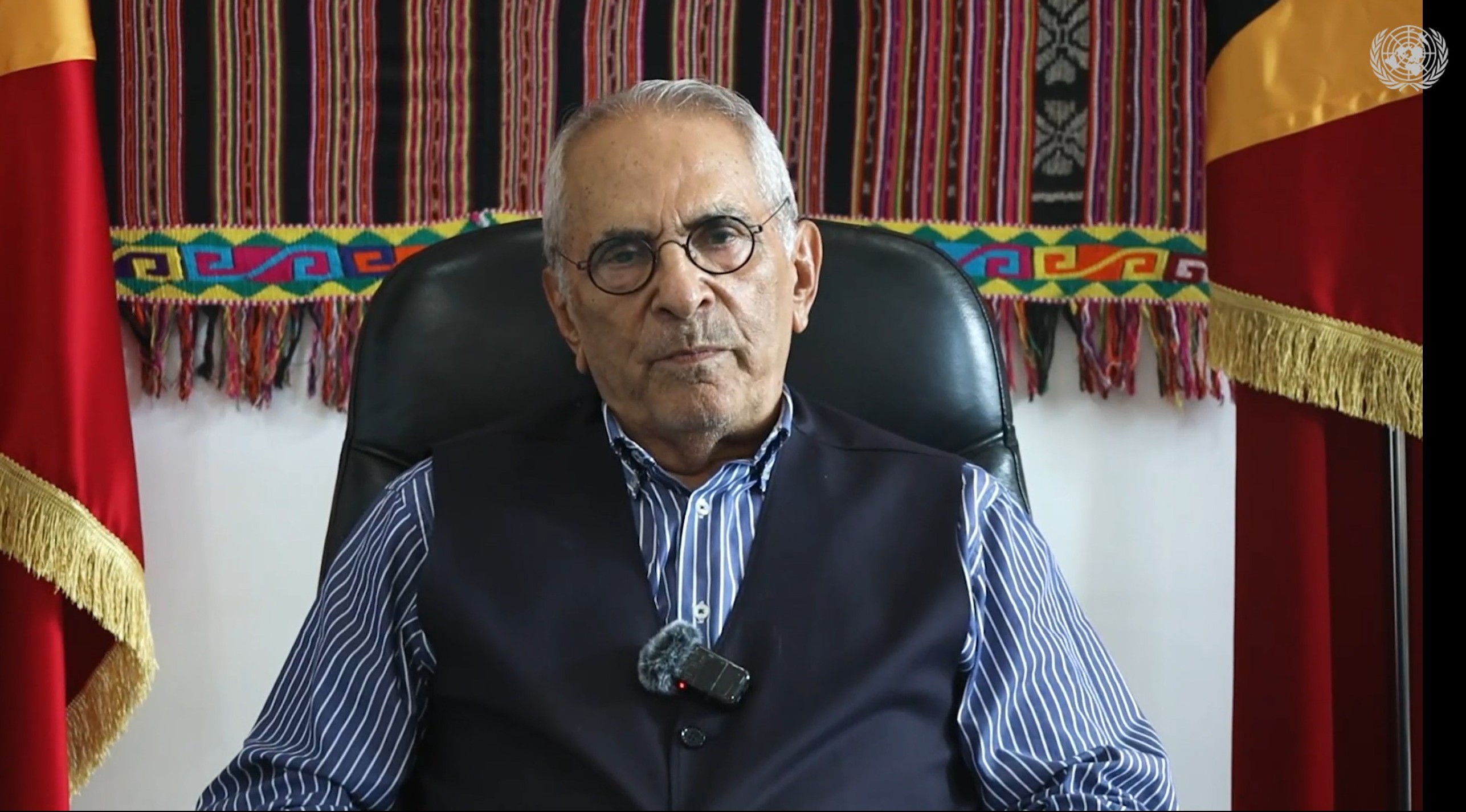
José Ramos-Horta, President of Timor Leste and 1996 Nobel Peace Laureate.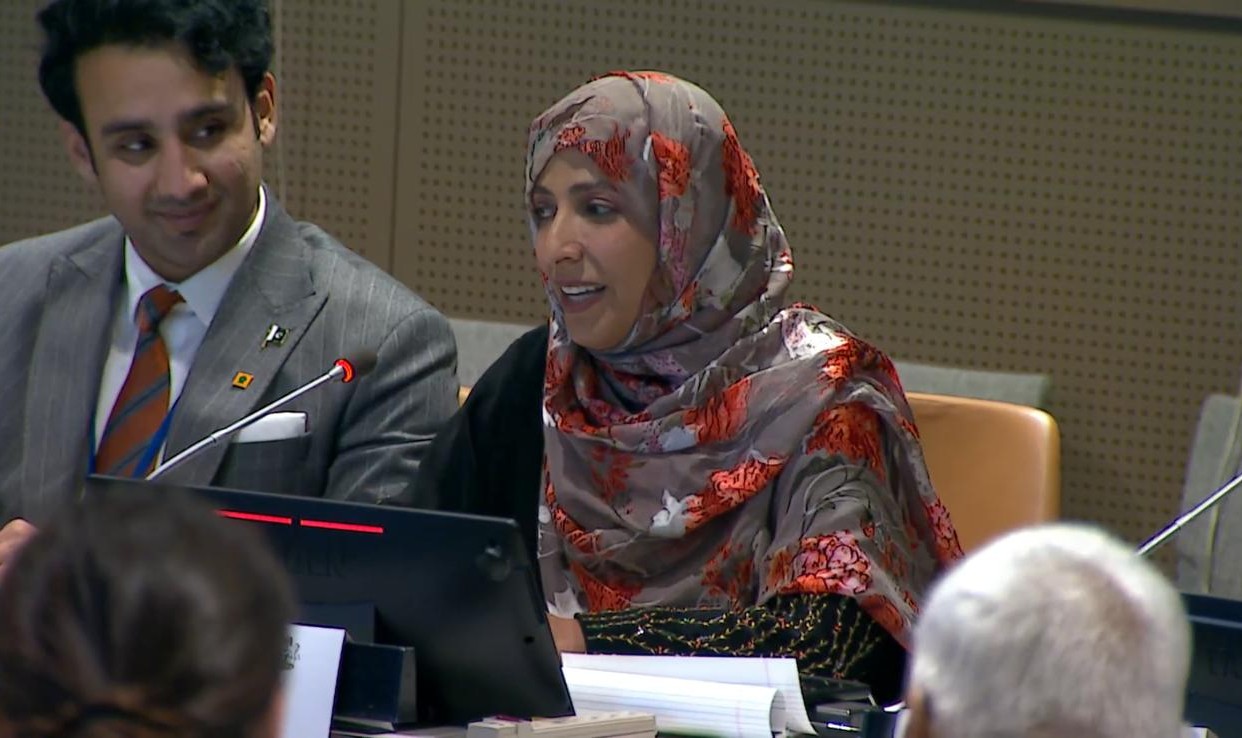
Dr. Tawakkol Abdel-Salam Khalid Karman, Nobel Peace Prize Laureate, Yemeni journalist, and human rights activist, speaks at the event.